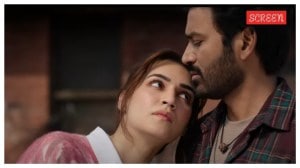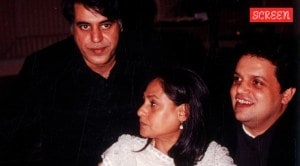Inside the books of James Lee Burke
This is a shameless plug for an author who isn’t too popular in India, a man who I have never interacted with...

This is a shameless plug for an author who isn’t too popular in India, a man who I have never interacted with, and who will never know of or read this column. So no ulterior motives here; I just want to share a secret of mine. James Lee Burke. He writes detective novels that can bring a tear to your eye.
He writes whodunits, but has been called “America’s best novelist”. A writer in The Observer was moved to write: “That James Lee Burke has been consigned to the literary ghetto called ‘crime fiction’ is itself an offence . . . Burke is an exceptional writer, no qualification necessary.” The Washington Post believes that “Burke can touch you in ways few writers can”. And a critic in The Times mused: “At times Burke’s writing and atmosphere remind one of William Faulkner, at other moments Raymond Carver. I cannot think of much higher praise that can be accorded a novel.” OK, so now, hopefully, I have proved that I am not a freak or a huckster.
Like Faulkner, Burke is essentially a chronicler of the American South: a society scarred indelibly by racism, plagued by economic disparity, where the wealth of elite white families hides horrific ancient injustices that went casually unpunished. The novels usually begin with a murder and it is left to policeman Dave Robicheaux (who features in most of Burke’s books) to piece together the jigsaw where the last piece is almost always an obscene truth that has been carefully hidden for decades. It’s Greek tragedy masquerading as detective fiction and beginning with the last act.
Like all great detective fiction writers — like Raymond Chandler and Dashiell Hammett —the pleasure (and the pain) Burke offers the reader is about much more than figuring out who the murderer is. One reads Burke for the language (pure poetry), the evocation of the heat and the rain on the edge of the Gulf of Mexico, and for the character of Dave Robicheaux, a deeply flawed and profoundly moral man.
If a reader returns to a detective novel, knowing who the murderer is, and reads it again just to savour all that is proffered other than its final secret, that novel belongs to the shelf reserved for literature, not, with all due apologies to the fans, Agatha Christie or John Grisham.
Robicheaux is a character of mythic proportions. Filled with a dangerous rage at the appalling injustice of this universe, he is a recovering alcoholic who has married four times (once divorced, one wife murdered, one dead from an incurable blood disease), and is forever haunted by demons from his past: his mother who abandoned him as a child and ran off with a gambler, his war memories from Vietnam, his knowledge that he is still within an arm’s reach of debilitating alcoholism. Often he has to fight to stay sane, trying to conquer his own fallibilities while facing up to pure inexplicable Evil.
No author I have ever read has portrayed Evil as chillingly as James Lee Burke.
Burke’s nasties live in a moral vacuum, extreme sociopaths whose contempt for humanity is startling, their brutality sickening. The sadistic Slim Grissom from James Hadley Chase’s No Orchids for Miss Blandish is a boy scout compared with some of these men. By creating Evil on such a scale, Burke makes his novels also a rumination on the human condition and yes, whether there is any divine force that mankind has been taught about. The novels only pretend to be crime fiction, and they carry off their pretence very well. But they are actually about the unfathomable mysteries that we try to keep on the fringes of our nightmares.
The Louisiana geography is described masterfully, yet the stories are all really set inside Robicheaux’s ravaged and conflicted soul that seeks redemption with a savage hunger. The question that the novels repeatedly confront the reader with is whether there is any chance that there is a higher purpose to existence, whether there is any state a moral person can reach other than absolute despair. And at the end of each novel, Burke answers that question, with a half-empty yet hopeful yes.
The books are very well-plotted too.
But this is not crime fiction. It’s literature on an epic scale, where darkness keeps gaining ground over light, the good are the most confused, there are no really happy endings, yet hope is justified, and salvation possible. I would love to see this man read by more people.
(Sandipan Deb, former editor of The Financial Express, heads the planned magazine venture of the RPG Group)



- 01
- 02
- 03
- 04
- 05




























